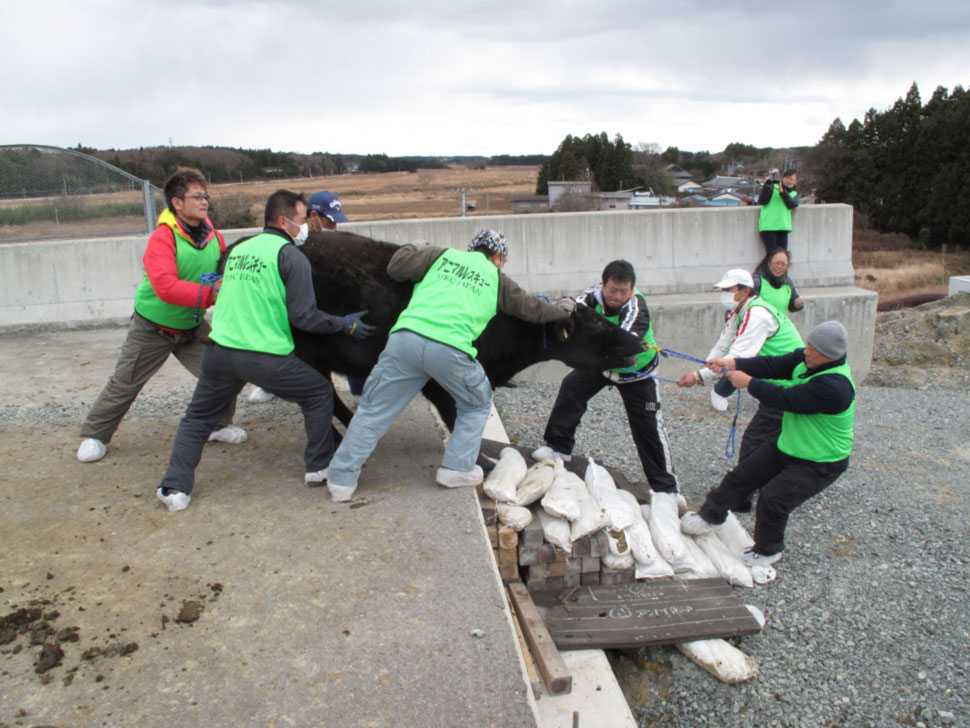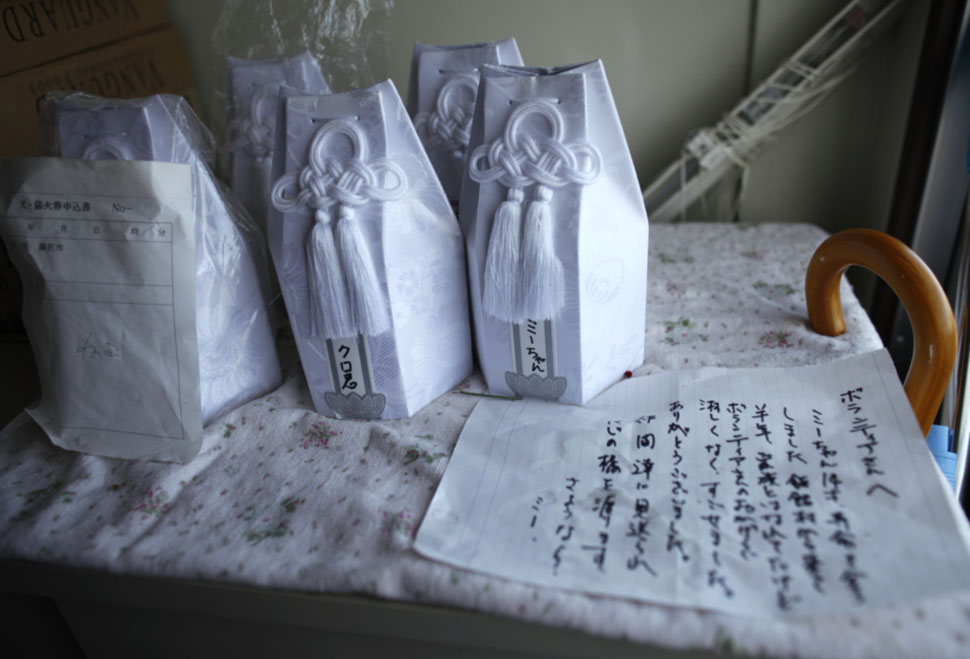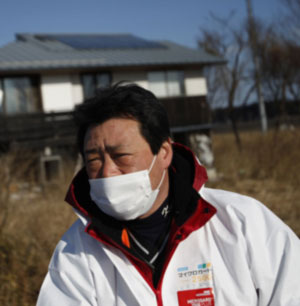
Interpol has issued a "red notice", above, for Benny Wenda, a tribal leader who campaigns for independence for the West Papua region from Indonesia. Wenda has been granted asylum in the U.K. on political grounds, according to Fair Trials International.
By Ian Johnston, msnbc.com
LONDON -- A landmark lawsuit alleging?that dictatorships and other oppressive regimes are using Interpol's alert system to harass or detain political dissidents is being planned by rights?activists and lawyers.
Campaigners allege?that rogue states have fabricated criminal charges against?opposition activists who have been given refuge in other countries and then sought their arrest by obtaining "red notices" from the global police body.
There are currently about 26,000 outstanding red notices. While they are only designed to alert other nations' police forces that an Interpol member state has issued an arrest warrant, some countries will take suspects into custody based on the red notice alone.
In one case, Rasoul Mazrae, an Iranian political activist recognized by the United Nations as?a refugee, was arrested in Syria in 2006 as he tried to flee to Norway after a red notice was issued.
Mazrae was?deported back to Iran, where he was tortured, according to a report by Libby Lewis, of the International Consortium of Investigative Journalists. He was later jailed for 15 years, Amnesty International says.
'Torturers and murderers'
In one of the latest cases, a red notice has been issued for Benny Wenda, a tribal leader who campaigns for independence for the West Papua region from Indonesia. He was granted asylum in the U.K. after claiming he had been tortured and prosecuted for inciting people to attack a police station. Wenda says he was in a different country at the time of the incident.
Mark Stephens, a leading British human rights lawyer, told msnbc.com that the red notice system can allow Interpol to unwittingly become "an aider and abettor of torturers and murderers in oppressive regimes."
Amid mounting anger within the legal community, the U.K.-based rights campaign group Fair Trials International is now seeking people who allege their red notices are politically motivated to take part in a class action lawsuit against Interpol.
If successful, the case would potentially make France-based?Interpol subject to the rulings of a court for the first time.
That would have implications not just for political dissidents, but?could also create an extra legal hurdle for any?country seeking to extradite alleged terrorists, murderers, international fraudsters, and other criminals based in another country.
Jago Russell, the chief executive of Fair Trials International, highlighted that Interpol's 190 member states include "countries that routinely abuse their criminal justice systems to persecute individuals."
Despite this, there is no independent court?where someone can challenge a notice and "no remedy for the damage that notices can cause," he said.
Iran, Syria, Myanmar, Sudan, Belarus and Zimbabwe?? all widely condemned for human rights abuses by their governments?? are members of Interpol and each country currently has red notices listed on its website.
"Powerful international organizations with the ability to ruin lives have to be accountable for their actions," Russell wrote in an email.
"Interpol's own credibility relies on proper accountability mechanisms to weed out cases of abuse, but if Interpol refuses to put its own house in order it could ultimately be up to the courts to step in and demand action," he added.
There have been legal challenges to Interpol's decisions heard in some countries' courts in the past, but these have?failed "to hold the organization to account," Russell wrote.
Russell hopes that a court with jurisdiction over a number of countries, such as the European Court of Human Rights,?will take a different view.
"This would no doubt be a long, hard process but with thousands of people affected by red notices every year and, with the rule of law at stake, it would be worth the fight," he said.
Political persecution
Fair Trials International is currently highlighting Wenda's case in particular and trying to help get his red notice removed.
He escaped from prison before being sentenced and fled Indonesia in 2002. Wenda traveled to the U.K., where he was granted asylum?due to?Indonesia's persecution of him on political grounds, according to Fair Trials International.
Wenda then?renewed his campaign, meeting politicians and others as he traveled the world. He also has a website highlighting the West Papuan cause.

Leon Neal / AFP - Getty Images, file
Benny Wenda, leader of the West Papuan Independence Movement, attends a protest in London on April 15, 2010.
In 2011, he became aware that Interpol had issued a red notice. According to?those details of the notice that have been made public by Interpol, Wenda is wanted for "crimes involving the use of weapons/explosives" by the Papua Regional Police.
According to Wenda, he was charged with inciting an attack on a police station and burning buildings that resulted in the deaths of a number of people even though he says he was not in Indonesia at the time.
Wenda says he was tortured, held in solitary confinement, and the judge and prosecutor requested bribes among other irregularities during the trial.
Wenda believes the red notice was sought partly to try to prevent him from traveling outside the U.K. to highlight the plight of West Papuans.
A?report by the Allard K. Lowenstein International Human Rights Clinic at the Yale Law School in 2003 found that "the West Papuan people have suffered persistent and horrible abuses" at the hands of the Indonesian government since the area was annexed in 1969. It also accused?Indonesian military and security?forces?of engaging in?"widespread violence and extrajudicial killings."
The research team concluded that?historical and contemporary evidence "strongly suggests that the Indonesian government has committed proscribed acts with the intent to destroy the West Papuans?... in violation of the 1948 Convention on the Prevention and Punishment of the Crime of Genocide."
'My people are crying'
Wenda says that his people continue to be "killed, raped and tortured."
"I think Indonesia is just trying to stop me and my campaign. I think that's the reason. I think this is just political motivation," Wenda told msnbc.com. "I'm not terrorist, I'm not criminal. Who's real terrorist or criminal? It's Indonesia itself.?
"My people are crying ... That's why I am up and down the country, traveling the world, telling the truth."
Human Rights Watch's World Report 2012?also highlights that?the U.S. provides "extensive military assistance to Indonesia" and adds that "impunity for members of Indonesia?s security forces remains a serious concern, with no civilian jurisdiction over soldiers who commit serious human rights abuses."
Jennifer Robinson, a?London-based human rights lawyer?and member of International Lawyers for West Papua, told msnbc.com in an email that "the charges that form the basis of the Interpol warrant are the very same politically motivated charges brought against Benny in 2002 -- and the very same charges that were the basis of the UK's decision to grant him political asylum."

Joshua Roberts / Reuters
London-based human rights lawyer Jennifer Robinson arrives at a hearing for U.S. Army Private First Class Bradley Manning's at Fort Meade, Md., on December 20.
"I attended his trial in West Papua on these charges, heard the evidence and witnessed the flagrant breaches of due process at that trial. I am witness to the fact the charges are without evidential basis," she added. "This was recognised by the U.K. in granting Benny refugee status for the political persecution he suffered in Indonesia. Now Indonesia is seeking to abuse the Interpol system to extend its political persecution across borders, undermining the protection afforded to Benny under the U.N. Refugee Convention."
In addition to the threat of arrest in the country of refuge, Fair Trials International?says?that a red notice makes international?travel risky ? partly because countries tend to deal with each one on a case-by-case?basis.
And even if a court in one country decides not to extradite the wanted person, the red notice remains and another country could take a different decision.
The stigma of being wanted for an alleged crime can also make everyday life difficult -- by making it hard to get a bank account, for example, due to background checks.
Michelle Estlund, a Coral Gables, Fla.-based lawyer who writes a blog focusing red notices, told msnbc.com that there should be some kind of quasi-judicial proceedings to level the "playing field" between an Interpol member state and?an individual. Part of the issue, she said, is that?Interpol initially assumes that red notice applications are properly submitted.
"If you are I are playing basketball and I haven't followed the rules and I haven't told you where the hoop is, it's going to be very hard for you to win, especially if the referee is presuming everything I do to be right," Estlund said.
Little transparency?
It is possible to complain about red notices but critics say the procedure suffers from a lack of transparency.
Complaints to Interpol that red notices are issued because of politically motivated charges are considered internally at first and then by a specially created body called the Commission for Control of Interpol's Files (CCF).
However, the panel -- which consists of?five unpaid commissioners and three members of staff -- holds its discussions in private and does not have to give any reasons for its decisions.
There are few successful challenges. According to statistics published in the commission's latest?annual report, 16 percent (or 32) of 201 requests that it received in 2010 raised questions about "the application of Article 3 of Interpol's constitution." Article 3 prohibits Interpol from activities of a "political, military, religious or racial character."
The CCF dealt with 170 requests in 2010 and 26 percent (or 44) of those cases resulted in the deletion of an Interpol file. Assuming 16 percent of those were Article 3 complaints, then just seven people had red notices removed in 2010 after claiming they were being prosecuted for political or other such unjustified reasons.
Billy Hawkes, the CCF's chairman, said the body examined complaints "very thoroughly."
"We recognize the dangers of red notices being used inappropriately for political objectives," he told msnbc.com from Dublin, Ireland. "Obviously we must all be concerned about the rights of individuals and dangers of abuse of the red notice system."
Hawkes warned, however, that adding judicial oversight of Interpol's red notices could hamper its ability to help catch criminals.
"We must remember that the object of a red notice is to have fugitive criminals stopped as quickly as possible, so they can face trial in the country they have committed the crime," he added.
One potential obstacle to taking legal action against Interpol is a deal it made with the French government that gives it immunity from some French laws. It is unclear how a European court would regard that deal.
'Unfairness'
Anand Doobay, a U.K.-based lawyer, confirmed to msnbc.com that he was?"investigating the possibility of some kind of legal challenge on behalf of clients who are affected by politically motivated prosecutions which have resulted in Interpol red notices being issued."
"The unfairness which is caused by having an unwarranted Interpol red notice is very difficult to address," he said.
"What we are looking at is ways of trying to deal with the unfairness."
Estlund, the Florida-based lawyer, said oppressive regimes should not be expelled from Interpol because they might become "safe havens for people who have committed real crimes."
Instead she argued?that red notice requests from countries with a record of corruption should be subject to greater scrutiny. "I do think Interpol is capable of doing that," she added. "I don't think it's too much to hope that that will happen."
A?statement emailed to msnbc.com by an Interpol spokeswoman on Jan. 11 said there were 26,051 valid red notices at that time, including 7,678 issued in 2011.
It listed three ways?people "can?challenge a red notice and/or the national arrest warrant upon which the request was submitted":
- argue their case before the national authorities of the requesting country;
- contact the Commission for the Control of Interpol's Files;?
- or request their country to take the case itself and protest against the red notice.
The statement?added that the "issuance of a red notice is not a judicial decision." "Each Interpol member country decides for itself what legal value to give red notice within their borders," it said.
"Interpol's role is not to question allegations against an individual, nor to gather evidence, so a red notice is issued based on a presumption that the information provided by the police is accurate and relevant," the statement added.
Follow msnbc.com's Ian Johnston on Twitter.
Source: http://worldnews.msnbc.msn.com/_news/2012/01/23/10167327-interpol-faces-legal-threat-for-helping-oppressive-regimes-hunt-dissidents
duggar family dingo fidel castro gilbert arenas north korea dexter dexter












